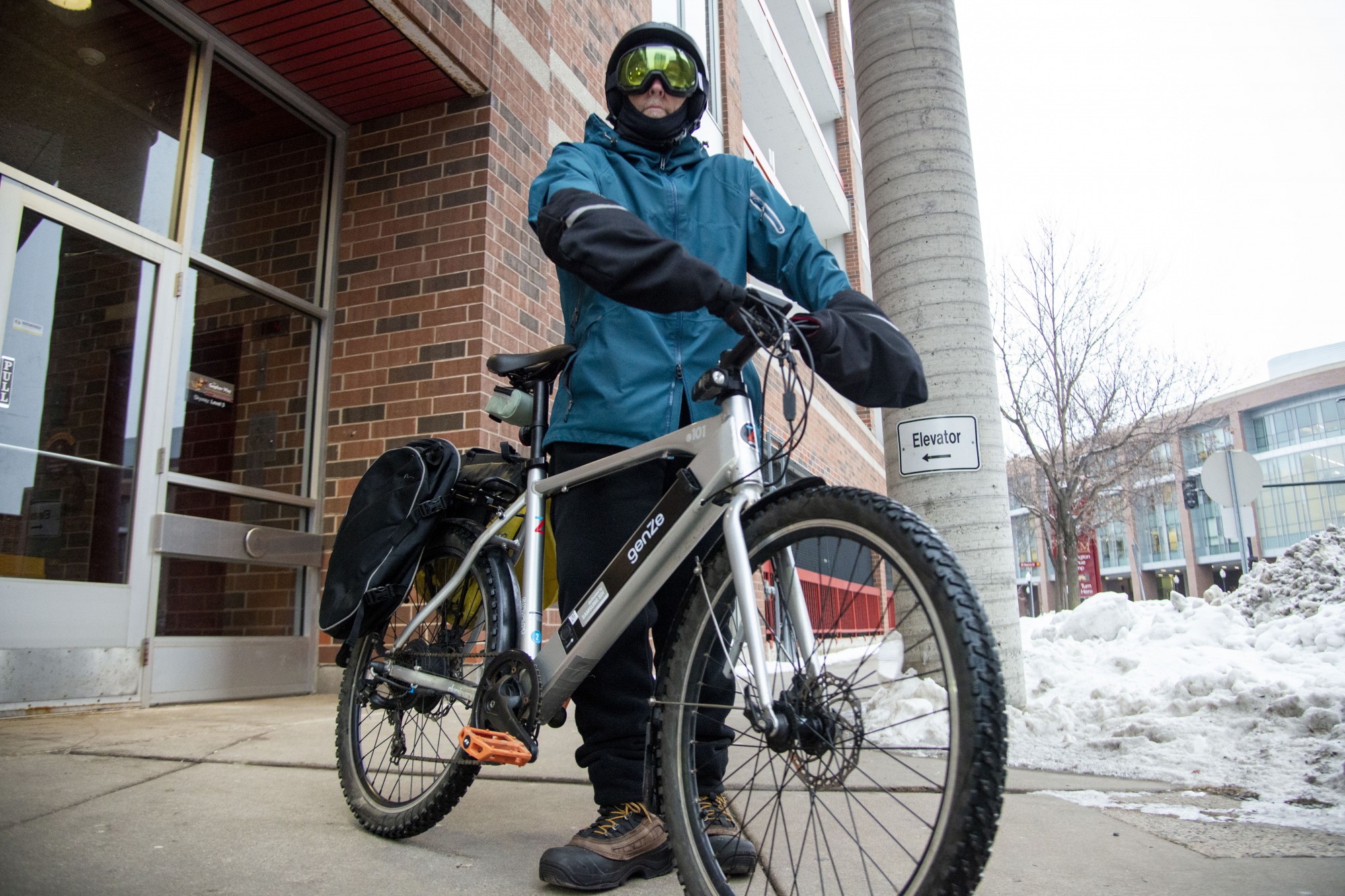Every morning for the past 25 years, Steve Sanders has left his house at 6:50 a.m. to bike to work. Depending on the weather, Sanders strategically dons several layers of synthetic long sleeves, silk long johns and mid-length winter boots.
If it dips below zero, he adds a fleece jacket, battery-heated gloves and a pair of ski goggles.
Sanders makes it a point to brave the harsh winter weather not only because he loves to bike, but also in an effort to combat climate change.
As the University’s alternative transportation manager, he knows that not everyone is able to do what he does. His job, however, is to make it easier for students and faculty to commute and navigate campus without relying on gasoline-powered cars.
Through a variety of bike programs, bus lines, ride-share collaborations and electric scooter docks, the University works to make eco-friendly modes of transportation readily available on campus.
The goal is to reduce the University’s carbon footprint and encourage a healthier community, Sanders said.
“When people realize that the choices they make have consequences, that’s the first step in anything,” he said.
One of the biggest difficulties Sanders said he faces is changing the car-centered culture on campus.
“Half the battle is just making people aware of what [eco-friendly options] there are, and then encouraging them to try it,” he said. “And when the car is always the first [and] easiest choice, it’s even harder.”
Some of the programs he manages include the Zap biking initiative, which incentivizes eco-friendly transportation habits by recording how many miles bikers ride and how emissions are reduced. The program rewards bikers with points they can exchange for gift cards to local companies and restaurants.

Other initiatives include the Gopher RideShare — which encourages carpooling — bike and electric scooter rentals, and the U-Pass program.
Since the University is the third-largest generator of traffic in the state, another problem it faces is the lack of space for parking.
Sandy Cullen, the assistant director of the University’s Parking and Transportation services, said the number of applicants for the student parking lottery on campus has grown by over 50 percent since the spring of 2014, while the number of available spots on campus has remained relatively the same.
“People’s cars and their parking spots are a big part of their day,” she said. “But how do we get people to think twice?”
Ellie Hedlund, the president of the University Cycling Team, said making even the slightest change in one’s daily routine can make a big difference.
“If [people] can take public transportation, or walk more, or ride our bikes, it’s just one small step in the right direction,” she said.
Over the past couple of years, Hedlund has noticed an increase in the number of bikers, both on campus and within her club. As someone who bikes every day to class to reduce her carbon footprint, she said there’s community value in participating in something that contributes to the greater good.
“We have the opportunity to really have an impact on our community,” Sanders said. “And I think that’s super rewarding.”








